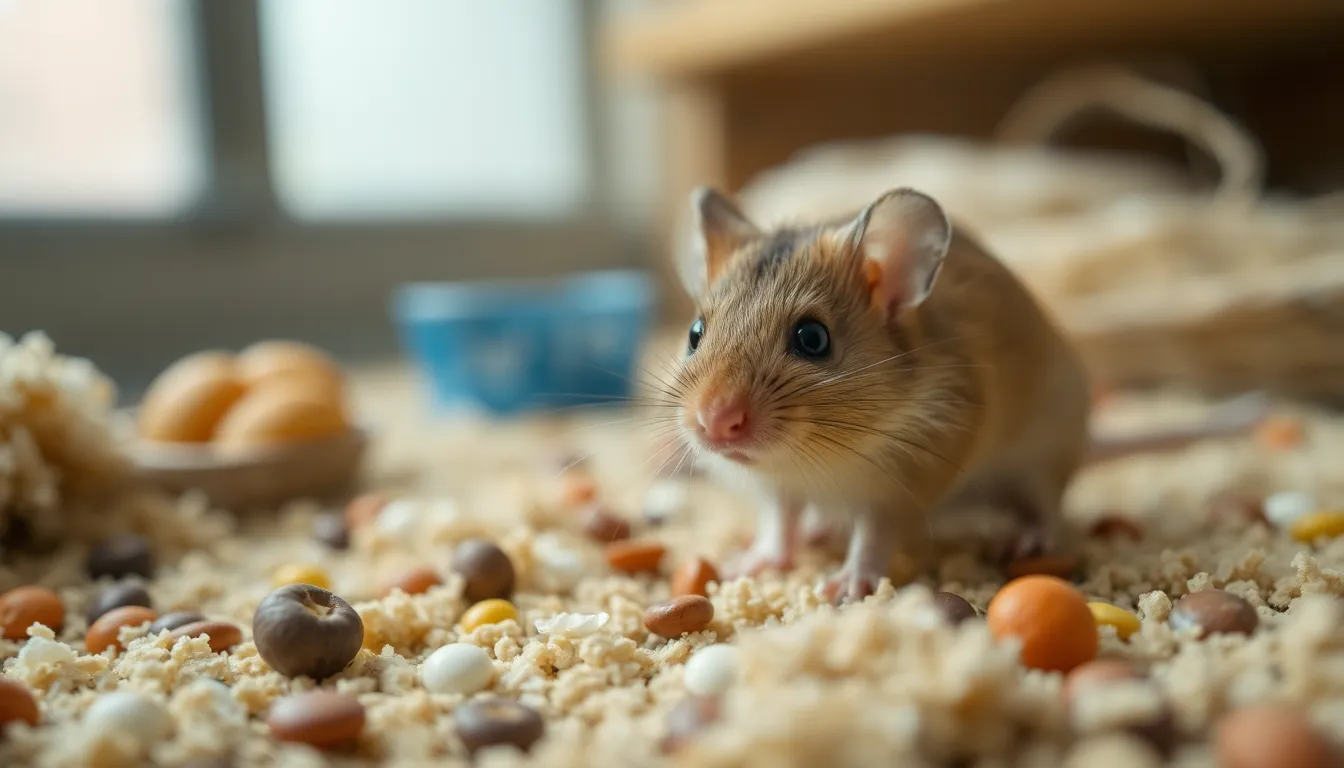Ever caught a whiff of something funky and wondered if a tiny rodent’s been throwing a party in your home? Mouse pee might not be on anyone’s list of delightful aromas, but understanding its scent can save you from a rodent invasion. It’s time to dive into the curious world of mouse pee and discover what makes it so uniquely pungent.
Picture this: a blend of ammonia and something earthy that could make even the most seasoned nose wrinkle in disgust. Knowing what mouse pee smells like isn’t just about curiosity; it’s about being proactive. By recognizing this scent, you can take action before a small problem turns into a big infestation. So, let’s unravel the mystery behind this tiny terror’s trademark odor and learn how to keep your space rodent-free.
Table of Contents
ToggleUnderstanding Mouse Pee
Mouse urine emits a strong odor that signals potential infestations. Recognizing this smell leads to prompt actions that can help maintain a rodent-free space.
Composition of Mouse Urine
Mouse urine comprises water, urea, creatinine, and ammonia. Ammonia contributes significantly to its sharp scent, often recognized as similar to household cleaners. The presence of various metabolites further intensifies the overall odor, making it noticeable to humans. Research indicates that the specific composition may vary by mouse species, affecting the strength of the scent. Additionally, the diet of the mouse also plays a role in influencing the smell of their urine.
Factors Affecting Odor
Several factors can influence the odor intensity of mouse urine. Freshness impacts the potency of the scent; older urine tends to smell less pronounced. Environmental conditions such as humidity and temperature can intensify the smell, bringing it to the forefront. Moreover, the health and diet choices of the mouse are key contributors, with certain foods leading to stronger smelling urine. The age of the mouse also plays a part; older mice may produce urine with a more pungent odor.
Common Descriptions of the Smell

Mouse urine commonly emits a strong, pungent odor. This scent often combines elements of ammonia and earthy undertones, resulting in an unpleasant smell that might easily alert individuals to a potential rodent issue.
Comparison to Other Animal Urine
Mouse urine stands out when compared to other animal urine. Its ammonia-like scent is sharper than that of cats and dogs, which generally carry a more mild, musk-like quality. Rodent urine, particularly mouse pee, tends to be more concentrated, leading to a stronger and more identifiable odor. In contrast, the urine of larger mammals often has a less intense smell, making it easier to overlook.
Variability in Smell Among Different Mouse Species
Variability exists in the smell of mouse urine across different species. Each species possesses unique biochemical compositions that influence odor characteristics. For example, field mice might emit a different scent compared to house mice, often due to variations in diet and habitat. The freshness of the urine can also play a vital role; older urine tends to have a more potent smell than freshly deposited urine. Environmental factors, such as temperature and humidity, further contribute to these differences in odor intensity.
Implications of Mouse Pee Odor
Mouse urine odor has significant implications for health and pest control measures. Recognizing this smell can prompt timely action.
Health Concerns and Hygiene
Mouse urine poses health risks due to potential pathogens carried within it. Leptospirosis, hantavirus, and lymphocytic choriomeningitis are diseases linked to rodent exposure. Inhalation or contact with contaminated surfaces can result in infection. Proper sanitation becomes essential in areas with mouse activity. Using gloves and masks during cleanup minimizes exposure risks. Regular disinfection of surfaces aids in maintaining hygiene. Homeowners should also observe for other signs of infestation, such as droppings. Immediate rodent control measures help prevent health issues related to mouse urine.
Attracting Predators and Deterrents
Mouse urine can attract predators, such as cats and certain birds of prey. Strong scents signal the presence of rodents to potential predators. Conversely, the odor also acts as a deterrent to some creatures. Certain repellents can mitigate the smell, reducing both attraction and risk of predators taking up residence. Keeping spaces clean and airtight keeps mouse populations in check. Implementing traps alongside repellents provides a multifaceted approach to pest control. Regular monitoring for urine odor indicates whether additional measures are necessary.
How to Manage Mouse Odor
Effective management of mouse odor requires thorough cleaning and proactive measures.
Cleaning Techniques
Initial cleanup involves using gloves when handling mouse droppings and urine. Disinfect areas with a mixture of water and bleach to eliminate harmful pathogens. Clean surfaces with paper towels, disposing of them in sealed bags. Airing out the affected area improves ventilation while reducing odor. Regular vacuuming also aids in removing allergens and lingering smells. Utilize enzymatic cleaners specifically designed for pet or wildlife odors; these break down the organic compounds in urine, neutralizing the scent more effectively.
Preventative Measures
Sealing entry points prevents mice from entering homes and creating odors. Inspect areas around pipes, vents, and doors for gaps or cracks. Proper food storage, especially in airtight containers, deters mice from foraging indoors. Maintaining an organized environment minimizes clutter where mice may nest. Additionally, setting traps in high-risk areas can help monitor for mouse activity. Regularly checking for signs of droppings or urine can indicate the need for further action, empowering homeowners to take swift measures to protect their space.
Recognizing the smell of mouse urine is crucial for maintaining a healthy living environment. Its sharp ammonia-like odor serves as a warning sign of potential rodent activity. By staying vigilant and understanding the nuances of this smell, homeowners can take proactive steps to prevent infestations and protect their health.
Effective pest control strategies and thorough cleaning can significantly reduce the risk associated with mouse urine. Implementing measures like sealing entry points and using appropriate cleaning products will contribute to a rodent-free home. Awareness of the odor and its implications empowers individuals to act quickly, ensuring their space remains safe and clean.









